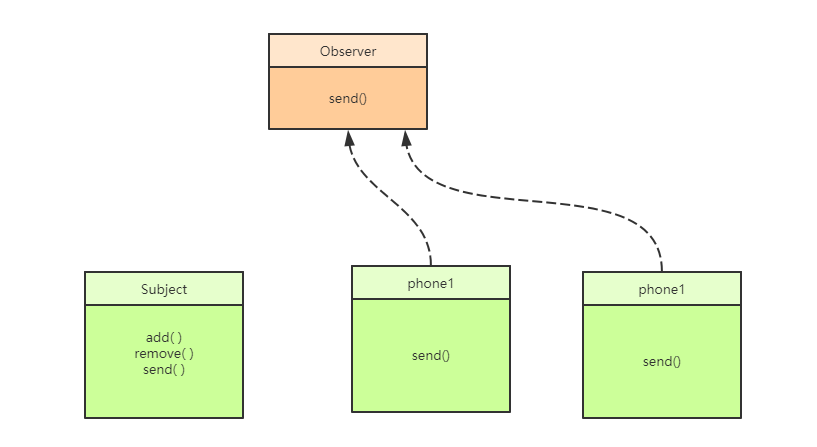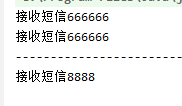观察者模式
观察者模式
当更改一个对象 可能需要更改其它对象

public interface Observer { void send (Object object); } ----------------------- public class Subject { private List<Observer> list = new ArrayList<>(); // 加入群聊 public void add (Observer observer){ list.add(observer); } // 提出群聊 public void remove(Observer observer){ list.remove(observer); } // 发送短信 public void send(Object object){ for (Observer observer:list){ observer.send(object); } } }
public class Phone1 implements Observer{ @Override public void send(Object object) { System.out.println("接收短信" + object); } } ----------------------- public class Phone2 implements Observer{ @Override public void send(Object object) { System.out.println("接收短信" + object); } }
class testOne{ public static void main(String[] args) { Subject subject = new Subject(); Phone1 phone1 = new Phone1(); Phone2 phone2 = new Phone2(); // phone1 加入群聊 subject.add(phone1); // phone2 加入群聊 subject.add(phone2); // 发送短信 subject.send("666666"); } }
2个收到短信

class testOne{ public static void main(String[] args) { Subject subject = new Subject(); Phone1 phone1 = new Phone1(); Phone2 phone2 = new Phone2(); // phone1 加入群聊 subject.add(phone1); // phone2 加入群聊 subject.add(phone2); // 发送短信 subject.send("666666"); System.out.println("------------------------"); // 将phone1 踢出群聊 subject.remove(phone1); // 发送短信 subject.send("8888"); } }
只有一个接收短信



